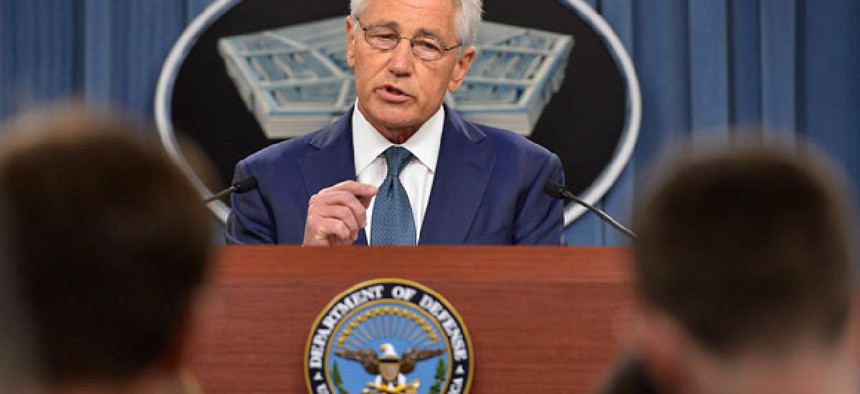Hagel Presses Air Force for Details on Discipline of Nuclear Missile Staffers

Defense Department
The 17 officers could return to their posts in 60 days.
The Air Force must provide further details on its recent decision to remove 17 intercontinental ballistic missile control personnel from their positions at Minot Air Force Base in North Dakota, Defense Secretary Chuck Hagel said on Wednesday.
The service took steps against 17 missile workers after a March audit indicated their grasp of firing procedures was "marginal," the Associated Press reported. The disciplined service members are undergoing remedial preparation and would go back to their posts in roughly 60 days, the Air Force indicated.
The service said ICBM protections and safety were not undermined by the situation at Minot.
“The idea that we have people not performing to the standard we expect will never be good and we won’t tolerate it,” Air Force Chief of Staff Gen. Mark Welsh said in testimony to lawmakers.
He said some staffers believe Washington's openness to pursuing further atomic arms cuts would ultimately spell an end to the Air Force nuclear mission. “That’s actually not the case, but that’s the view when you’re in the operational force,” Welsh said. “We have to deal with that.”
The identification of problems within the 91st Missile Wing indicates the service has grown more adept at identifying internal problems, according to Air Force Secretary Michael Donley. The disciplined personnel held missile control positions typically occupied by relatively inexperienced staffers, he added.
Auditors rated as "excellent" the missile firing knowledge of separate ICBM command groups at Malmstrom Air Force Base in Montana and F.E. Warren Air Force Base in Wyoming, the Air Force indicated on Wednesday. The appraisals were the equivalent of "B" grades for the two units, which each oversee 150 Minuteman 3 ICBMS.
Personnel in the 91st Missile Wing have sometimes decided against confronting or informing superiors of colleagues who act in breach of procedures, unit deputy chief Lt. Col. Jay Folds said by e-mail. Unit personnel had deliberately acted in breach of accident prevention standards on one or more occasions, he indicated.
NEXT STORY: Are Tech Gadgets Killing Workplace Etiquette?





